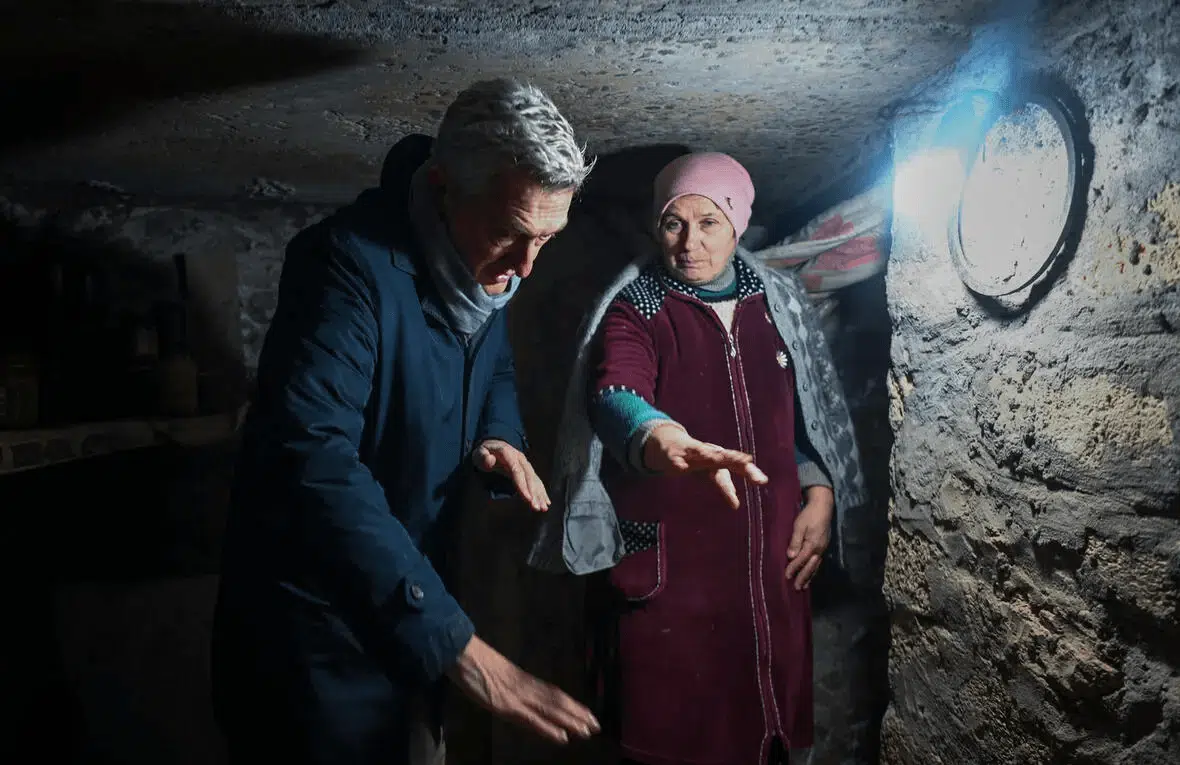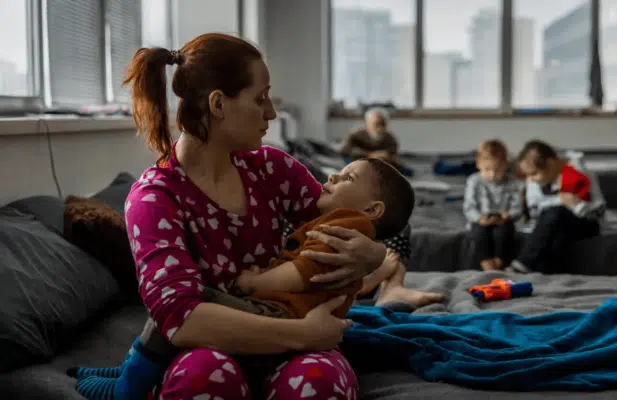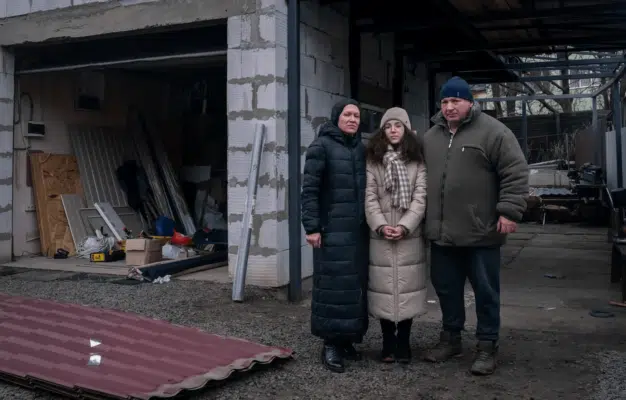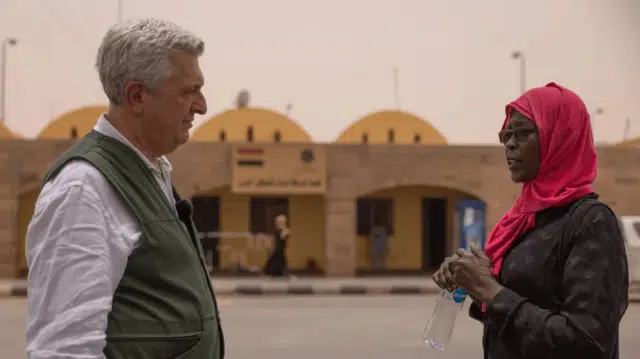
Valentina Anatoliova shows UN High Commissioner for Refugees Filippo Grandi the cellar where she sheltered from shelling at her home in Shevchenkove, Mykolaiv Oblast, Ukraine, in March 2022. © UNHCR/Colin Delfosse
Following a record annual rise in forced displacement last year, UN High Commissioner for Refugees blames new and existing conflicts and calls for greater focus on solutions.
New outbreaks of conflict and an inability to resolve long-running crises have helped propel the number of people forced to flee their homes to a record 110 million, new figures published by UNHCR, the UN Refugee Agency, in its annual Global Trends report showed on Wednesday.
The data revealed that last year saw the highest-ever annual increase in forced displacement of more than 19 million people. The biggest contributor was the ongoing war in Ukraine, while the eruption of violence in Sudan this April pushed the total further into uncharted territory.
“We have 110 million people that have fled because of conflict, persecution, discrimination, violence – often mixed with other [factors], in particular the impact of climate change,” UN High Commissioner for Refugees Filippo Grandi told reporters in Geneva. “It’s quite an indictment on the state of our world, if I may say, to have to report that.”
Grandi pointed to statistics showing that 70 per cent of the world’s refugee population of 35 million in 2022 are currently living in low- and middle-income countries. “The prevailing rhetoric is still that all the refugees go to the rich countries. This is actually wrong. It’s quite the opposite,” he said.
The continued generosity among hosting nations that often face a stark lack of resources can be seen in countries like Chad, which has received more than 115,000 refugees from Sudan, and coastal states in West Africa that have welcomed tens of thousands of refugees from Burkina Faso this year.
Such generosity contrasts with a hardening of political attitudes and policies towards refugees in some other parts of the world.
“We see pushbacks. We see tougher and tougher immigration or refugee admission rules. We see in many countries a criminalization of immigrants and refugees, blaming them for everything,” the High Commissioner said. “Leadership is about convincing your public opinion that there are people that deserve international protection.”
The negative discourse around refugees and others fleeing violence and persecution makes it increasingly difficult to discuss solutions that could slow or halt the rising displacement trend – something Grandi said he hopes the second Global Refugee Forum in December can rectify.
“There is a little ray of hope there.”
“We are not in a world where solutions do not happen,” Grandi pointed out. Data for last year showed that resettlement of refugees to third countries rose to 114,000, thanks in part to an increase in arrivals to the United States. “Still a drop in the ocean, let’s face it, if you have 35 million refugees, but it’s double the figure of the year before so there is a little ray of hope there.”
Asked about policies being pursued by the European Union and US towards mixed flows of refugees, asylum seekers and migrants undertaking risky voyages to their borders, the High Commissioner set out his vision for a “panoramic view” of such movements that takes account of the entire journey.
“It cannot be just about controlling your borders,” he said. “These are long journeys that people make, and every country concerned should be part of the dialogue. It may be possible that some people do not want to go so far away from their country if they have opportunities in the countries along the way. But to do that, you have to create those opportunities and work with those countries to do it.”
But he rejected any approach that would deny the right for those seeking safety to claim asylum. “One thing we will never be able to agree to is that nobody is allowed to seek asylum in [the European Union] or in the United States, or in the United Kingdom for that matter. So that door needs to remain open. We can help maybe reduce the pressures and reduce the causes of people moving or moving on, but we cannot compromise on asylum everywhere.”
Budget shortfall
Grandi concluded with a warning that UNHCR was facing an unprecedented budget shortfall in 2023, threatening its ability to respond to the needs of people affected by an ever-growing number of emergencies around the world. Over the past three years UNHCR has declared an average of 35 emergency situations annually – a sharp rise compared with previous years.
“We are not in a good financial situation this year,” he said. “We struggle more than in previous years. Aid budgets are under pressure everywhere. It’s a combination of the war in Ukraine, post-COVID, economic pressures, inflation.”
Despite receiving a record $1 billion in donations from private sources last year, due largely to the response to the Ukraine crisis, the High Commissioner said the bulk of UNHCR’s budget should continue to be met by contributions from governments.
“The needs are not waiting for these contributions, they’re just going up – year in, year out.”
Originally published by UNHCR on 14 June 2023.





